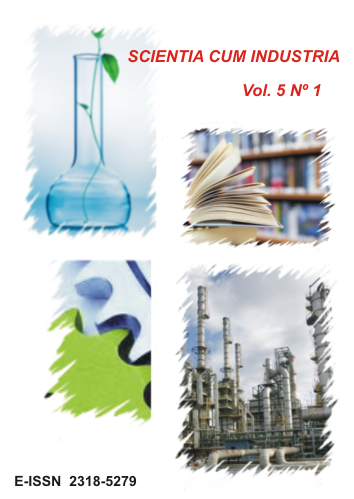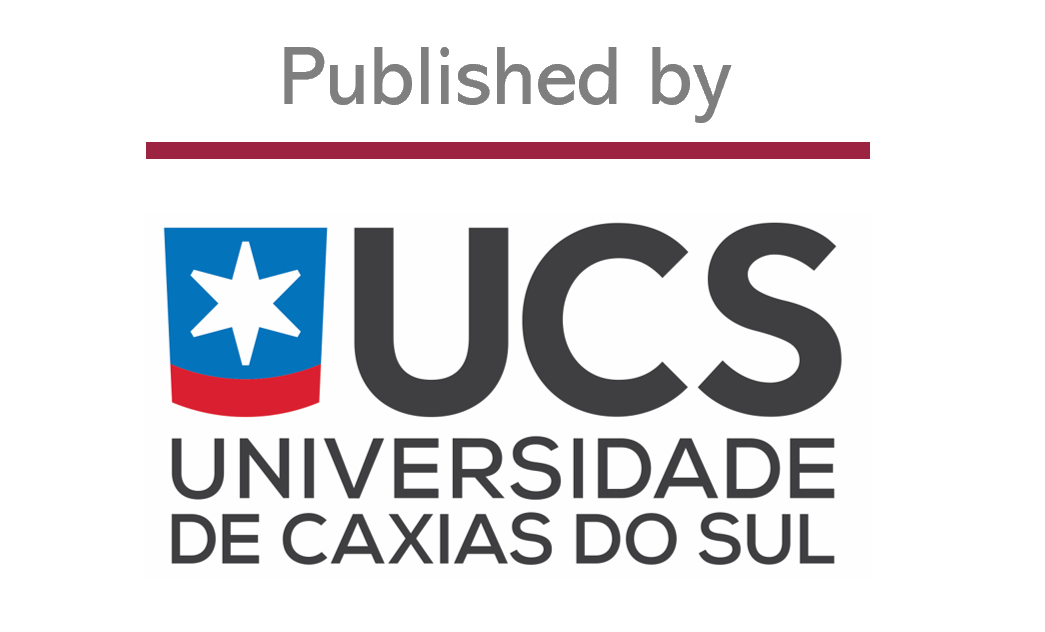Boas práticas em gestão ambiental de Instituições de Ensino Superior: o caso da Universidade de Turku de Ciências Aplicadas
DOI:
https://doi.org/10.18226/23185279.v5iss1p10Abstract
A indicação de que parte do atual cenário ambiental é resultante das atividades humanas tem gerado um aumento da pressão política e social sobre as organizações, para que essas adotem práticas ambientais eficazes. Essa pressão atualmente atinge aos mais diversos setores, inclusive o educacional. Dessa forma, a incorporação das questões ambientais ao planejamento estratégico, denominada estratégia ambiental, demonstra ser uma oportunidade de gerenciar, de forma eficaz, as diversas pressões e desafios da atualidade. As Instituições de Ensino Superior, em especial, possuem uma grande responsabilidade de executar aquilo que ensinam. Assim, o presente artigo tem por objetivo avaliar a gestão ambiental e a incorporação dos temas ambientais ao planejamento estratégico de uma Instituição de Ensino Superior internacional, por meio da percepção de seus colaboradores. Os resultados demonstram que a estratégia ambiental adotada pela Instituição possui natureza reativa, contrariando em partes sua responsabilidade de instituição promotora do conhecimento. Verifica-se, igualmente, que a Instituição possui um sistema de gestão ambiental informal, composto por diversas ações que possuem exigência legal. Identifica-se, por fim, inúmeras possibilidades de melhoria dos processos de gestão ambiental da organização.
References
INTERGOVERNMENTAL PANEL OF CLIMATE CHANGE (IPCC). Summary for policymakers. In: Metz et al. Climate change 2007: mitigation of climate change. Contribution of working group III to the Fourth Assessment Report of the Intergovernmental Panel of Climate Change. Cambridge University Press: UK, 2007. Disponível em: <http://www.ipcc.ch>. Acesso em: jun. 2015.
UNITED NATIONS ENVIRONMENT PROGRAMME (UNEP). Global Environment Outlook, GEO-4: Environment for development. United Nations Environment Programme. Progress Press: Malta, 2007. Disponível em: <http://www.unep.org/geo/geo4.asp>. Acesso em: jun. 2015.
LÓPEZ-GAMER, M. D.; MOLINA-AZORÍN, J. F.; CLAVER-CORTÉS, E. The whole relationship between environmental variables and firm performance: competitive advantage and firm resources as mediator variables. Journal of Environmental Management, v.90, n.10, July 2009, p. 1-12. Disponível em: <http://www.sciencedirect.com>. Acesso em: out. 2015.
SARKIS, J.; GONZALEZ-TORRE, P.; ADENSO-DIAZ, B. Stakeholder pressure and the adoption of environmental practices: the mediating effect of training. Journal of Operation Management, v.28, n.2, p.163-176, 2010. Disponível em: <http://www.sciencedirect.com>. Acesso em: jan. 2016.
GOTSCHOL, A.; DE GIOVANNI, P.; VINZI, V. E. Is environmental management and economically sustainable business? Journal of Environmental Management, v.144, n.1, November 2014, p.73-82. Disponível em: <http://www.sciencedirect.com>. Acesso em: out. 2015.
CHEN, Y. et al. Linking market orientation and environmental performance: the influence of environmental strategy, employee’s environmental involvement and environmental product quality. Journal of Business Ethics, v.127, n.2, March 2015, p.479-500. Disponível em: <http://www.springer.com>. Acesso em: nov. 2015.
BETTS, T. K.; WIENGARTEN, F.; TADISINA, S. K. Exploring the impact of stakeholder pressure on environmental management strategies at the plant level: what does industry have to do with it? Journal of Cleaner Production, v.92, n.1, April 2015, p.282-294. Disponível em: <http://www.scientificpapers.org>. Acesso: nov. 2015.
SIMKINS, G. Best Practice in University Environmental Management. Tese apresentada como pré-requisito para obtenção do título de Mestre em Ciências, de acordo com as regras da Universidade East Anglia. 2003. 71p. Disponível em: <http://www.uea.ac.uk/documents/541248/ 10797368/Simkins+Gareth.pdf/093ebb68-fb7d-451a-bef1-610ae5c40b4 3>. Acesso em: 25 out. 2015.
HORHOTA, M. et al. Identifying behavioral barriers to campus sustainability. International Journal of Sustainability in Higher Education, v. 15, Iss 3, p. 343-358, 2014. Disponível em: <http://www.emeraldinsight.com/doi/abs/10.1108/IJSHE-07-20120065?journalCode=ijshe>. Acesso em: 02 dez. 2014.
BRASIL. Censo da educação superior 2012: resumo técnico. Brasília: Instituto Nacional de Estudos e Pesquisas Educacionais Anísio Teixeira, 2014. 133 p. Disponível em: <http://download.inep.gov.br/download/superior/ censo/2012/resumo_tecnico_censo_educacao_superior_2012.pdf>. Acesso em: 02 dez. 2014.
FREEMAN, R. E. Strategic Management: a stakeholder approach. Pitman: Marshfield, 1984.
FREEMAN, R. E. et al. Stakeholder Theory: the state of the art. Cambridge: Cambridge University Press, 2010.
DELAKOWITZ, B.; HOFFMANN, A. The Hochschule Zittau/Görliz: Germany’s first registered environmental management (EMAS) at an institution of higher education. International Journal of Sustainability in Higher Education, v.1, n.1, p.35-47, 2000. Disponível em: . Acesso em: 02 dez. 2014.
SIMONS, R. Levers of Control: How Managers Use Innovative Control Systems to Drive Strategic Renewal. Harvard Business School Press, USA. 1995. Disponível em: <http://books.google.com>. Acesso em: 12 nov. 2016.
PEREGO, P. Environmental Management Control: an empirical study on the use of environmental performance measures in management control systems. Ponsen & Looijen, Nijmegen, Ph.D. Dissertation. 2005. Disponível em: <http://repository.ubn.ru.nl/handle/2066/46728>. Acesso em: 12 nov. 2016.
PONDEVILLE, S.; SWAEN, V.; DE RONGÉ, Y. Environmental management control systems: the role of contextual and strategic factors. Management Accounting Research, v.24, n.1, p.317-332.2013. Disponível em: <http://www.elsevier.com/locate/mar>. Acesso em: 18 jun. 2016.
VALLE, C. E. do. Qualidade ambiental: ISO 14.000. São Paulo: Editora Senac São Paulo, 2002.
SILVA, A. A. N. de M. Gestão ambiental e Universidades: o estudo de caso do Programa Metodista Sustentável. Dissertação apresentada ao Programa de Mestrado em Administração da Universidade Metodista de São Paulo como requisito parcial para obtenção do título de Mestre. Universidade Metodista de São Paulo, São Bernardo do Campo. 2013. 139p.
BERO, B. N. et al. Challenges in the development of environmental management systems on the modern university campus. International Journal of Sustainability in Higher Education, v.13, n.2, p.113-149. 2012.
SAMMALISTO, K. Environmental management systems: a way towards sustainable development in Universities. Tese apresentada a Universidade de Lund como requisite parcial para obtenção do título de Doutor. Universidade de Lund, Suécia. 2007. 236p.
ASSOCIAÇÃO BRASILEIRA DE NORMAS TÉCNICAS – ABNT. ISO 14.001 – Sistema de gestão ambiental. Rio de Janeiro, 2015.
BANERJEE, S. B. Corporate environmentalism: the construct and its measurement. Journal of Business Research, v.55, n.3, p.177-191. 2002. Disponível em: <http://www.sciencedirect.com>. Acesso em: 1º mar. 2016.
DE ANDRADE, R. O. B.; TACHIZAWA, T.; DE CARVALHO, A. B. Gestão ambiental: enfoque estratégico aplicado ao desenvolvimento sustentável. 2ª edição. São Paulo: Pearson Education do Brasil, 2002.
PORTER. M. E.; VAN DER LINDE, C. Toward a new conception of the environment-competitiveness relationship. Journal of Economic Perspectives, v.9, n.1, p.97-118. 1995. Disponível em: . Acesso em: 1º fev. 2016.
TRUNG, D.; KUMAR, S. Resource use and waste management in Vietnam hotel industry. Journal of Cleaner Production, v.13, n.1, p.109-116. 2005. Disponível em: . Acesso em: 28 mar. 2016.
PORTER. M. E.; KRAMER, M. K. Strategy and society: the link between competitive advantage and corporate social responsibility. Harvard Business Review, v.84, n.12, p.78-92. 2006. Disponível em: <http://hbr.org>. Acesso em: 26 fev. 2016.
ARAGÓN-CORREA, J. A.; RUBIO-LÓPEZ, E. A. Proactive corporate environmental strategies: myths and misunderstandings. Long Range Planning, v.40, n.3, p.357-381. 2007. Disponível em: . Acesso em: 28 mar. 2016.
NAKAO, Y. et al. Relationship between environmental performance and financial performance: an empirical analysis of Japanese corporations. Business Strategy and the Environment, v.16, n.1, p.106-118. 2007. Disponível em: <http://www.sciencedirect.com>. Acesso em: 28 mar. 2016.
GALDEANO-GÓMEZ, E.; CÉSPEDES-LORENTE, J.; MARTÍNEZ-DEL-RÍO, J. Environmental performance and spillover effects on productivity: evidence from horticultural firms. Journal of Environmental Management, v.88, n.1, p.1552-1561. 2008. Disponível em: . Acesso em: 28 mar. 2016.
WAHBA, H. Does the market value corporate environmental responsibility? An empirical examination. Corporate Social Responsibility and Environmental Management, v.15, n.1, p.8999. 2008. Disponível em: <http://www.sciencedirect.com>. Acesso em: 28 mar. 2016.
RAO, P. Greening the supply chain: a new initiative in South East Asia. International Journal of Operations & Production Management, v.22, n.6, p.632-655. Disponível em: . Acesso em: 28 mar. 2016.
WATSON, K. et al. Impact of environmental management system implementation on financial performance. Management of Environmental Quality, v.15, n.1, p.622-628. 2004. Disponível em: <http://www.sciencedirect.com>. Acesso em: 28 mar. 2016.
WAGNER, M. How the reconcile environmental and economic performance to improve corporate sustainability: corporate environmental strategies in the European paper industry. Journal of Environmental Management, v.76, n.1, p.105-118. 2005. Disponível em: <http://www.sciencedirect.com>. Acesso em: 28 mar. 2016.
LINK, S.; NAVEH, E. Standardization and discretion: does the environmental standard ISO 14001 lead to performance benefits? IEEE Transaction on Engineering Management, v.53, n.1, p.508-519. 2006. Disponível em: <http://www.sciencedirect.com>. Acesso em: 28 mar. 2016.
DE GIOVANNI, P.; ZACCOUR, G. A two-period model of closed-loop supply chain. European Journal of Operational Research, v.232, n.1, p.22-40. 2014. Disponível em: . Acesso em: 28 mar. 2016.
ROESCH, S. M. A. Projetos de estágio e de pesquisa em administração: guia para estágios, trabalhos de conclusão, dissertações e estudos de caso. 2ª ed. Colaboração: Grace Vieira Becker e Maria Ivone de Mello. São Paulo: Atlas, 2006.
TRIVIÑOS, A. V. S. Introdução à pesquisa em ciências sociais: a pesquisa qualitativa em educação. São Paulo, Atlas, 1987. 175p.
GIL, A. C. Métodos e técnicas de pesquisa social. 5ª ed. São Paulo: Atlas, 1999.
VERGARA, S. C. Projetos e relatórios de pesquisa em administração. 3ª ed. Rio de Janeiro: Atlas, 2000.
VERGARA, S. C. Projetos de estágio e de pesquisa em administração: guia para estágios, trabalhos de conclusão, dissertações e estudos de caso. 3ª ed. São Paulo: Atlas, 2006.
SELLTIZ, C.; WRIGHTSMAN, L. S.; COOK, S. W. Métodos de pesquisa das relações sociais. São Paulo: Herder, 2000.
RICHARDSON, R. J. Pesquisa social: métodos e técnicas. 3ª ed. São Paulo: Atlas, 1999.
MATTAR, F. N. Pesquisa de marketing. 3ª. ed. São Paulo: Atlas, 2001.
GUNTHER, H. Pesquisa qualitativa versus pesquisa quantitativa: esta é a questão? Psicologia: teoria e pesquisa, v.22, n.2, p.201-210, maio/ago., 2006. Disponível em: <http://www.scielocom.br>. Acesso em: jul. 2016.
Kairisto-Mertanen, L. Introduction. In: LEHTO, A.; KAIRISTO-MERTANEN, L.; PENTTILÄ, T. Towards innovation pedagogy. Turku University of Applied Sciences. 2011. 163p. ISSN: 1459-7764.
UNIVERSIDADE DE TURKU DE CIÊNCIAS APLICADAS – TUAS. About us: TUAS. 2016. Disponível em: <http://www.tuas.fi/en/about-us/tuas>. Acesso em: 15 nov. 2016.
INSTITUTO DE SANEAMENTO AMBIENTAL – ISAM. Universidade de Caxias do Sul. Histórico das relações entre Brasil e Finlândia na Universidade de Caxias do Sul. Documento de pesquisa. 2015.
FÁVERO, L. P. et al. Análise de dados: modelagem multivariada para tomada de decisões. Rio de Janeiro: Elsevier, 2009.
MARCONI, M. A.; LAKATOS, E. M. Técnicas de pesquisa: planejamento e execução de pesquisas, amostragens e técnicas de pesquisas, elaboração e interpretação de dados. 3ª. ed. São Paulo: Atlas, 1996.
KLASSEN, R. D. WHYBARK, D. C. Environmental management in operations: the selection of environmental technologies. Decision Sciences, v.30, n.3, p.601-631. 1999. Disponível em: . Acesso em: 2 mar. 2016.
MORENO, C. E.; REYES, J. F. The value of proactive environmental strategy: an empirical evaluation of the contingent approach to dynamic capabilities. Cuadernos de administración, Bogotá (Colômbia), v.26, n.47, p.87-118. 2013. Disponível em: <http://revistas.javeriana. edu.co>. Acesso em: 2 mar. 2016.
AMEER, R.; OTHMAN, R. Sustainability practices and corporate financial performance: a study based on the top global corporations. Journal of Business Ethics, v.108, n.1, p.61-79. 2012. Disponível em: <http://link.springer.com>. Acesso em: 2 mar. 2016.
RYSZKO, A. Proactive environmental strategy, technological eco-innovation and firm performance – Case of Poland. Sustainability, v.8, n.156, p.1-20. 2016. Disponível em: <http://www.mdpi.com/journal/ sustainability>. Acesso em: 2 mar. 2016.
FRAJ, E.; MATUTE, J.; MELERO, I. Environmental strategies and organizational competitiveness in the hotel industry: the role of learning and innovation as determinants of environmental success. Tourism Management, v.1, n.46, p.30-42. 2015.
Downloads
Published
How to Cite
Issue
Section
License
Copyright (c) 2016 Scientia cum Industria

This work is licensed under a Creative Commons Attribution 4.0 International License.
Declaração de originalidade e cessão de direitos autorais
Declaro que o presente artigo é original, não está sendo tendo sido submetido à publicação em qualquer outro periódico nacional ou internacional durante o processo de revisão. Através deste instrumento, em meu nome e em nome dos demais co-autores, porventura existentes, cedo os direitos autorais do referido artigo à revista SCIENTIA CUM INDUSTRIA. Contudo, a reprodução total ou parcial impressa ou eletrônica pode ser feita desde que o autor comunique oficialmente à revista. Declaro estar ciente de que a não observância deste compromisso submeterá o infrator a sanções e penas previstas na Lei de Proteção de Direitos Autorias. Declaro estar ciente de que a não observância deste compromisso submeterá o infrator a sanções e penas previstas na Lei de Proteção de Direitos Autorias (Nº9610, de 19/02/1998).





